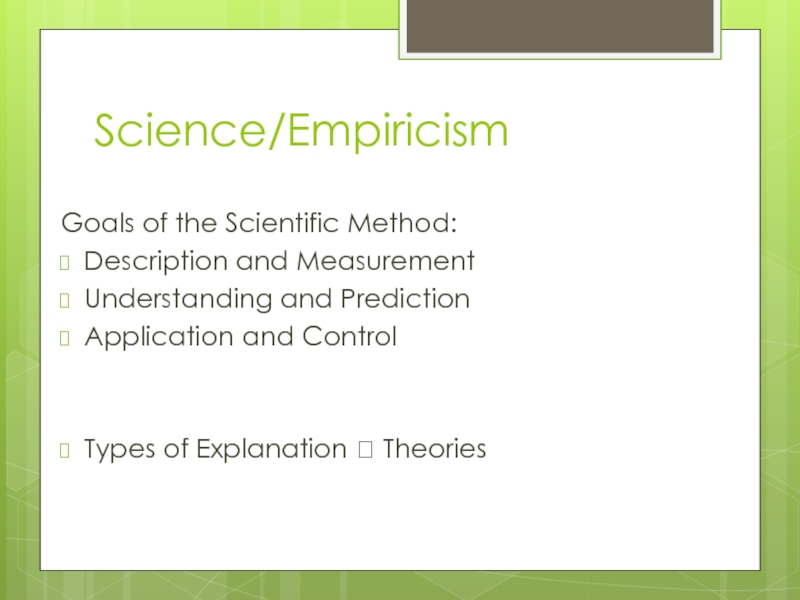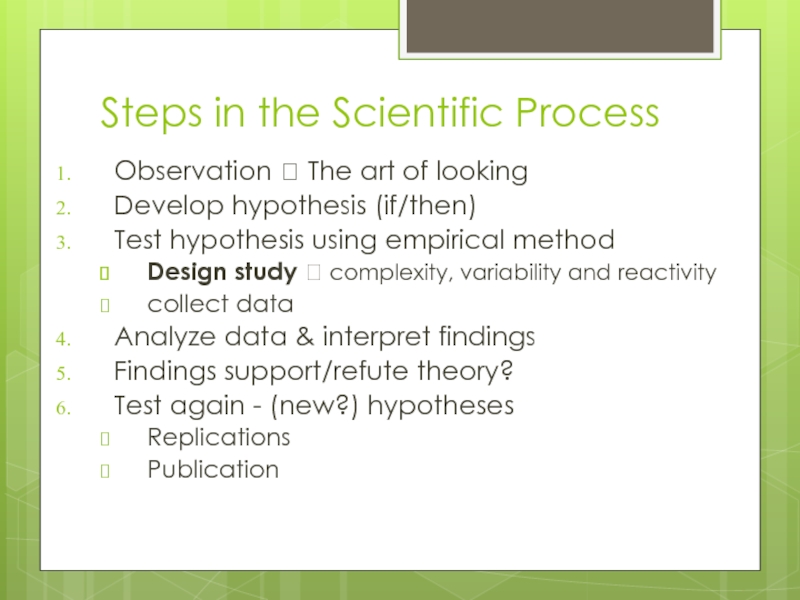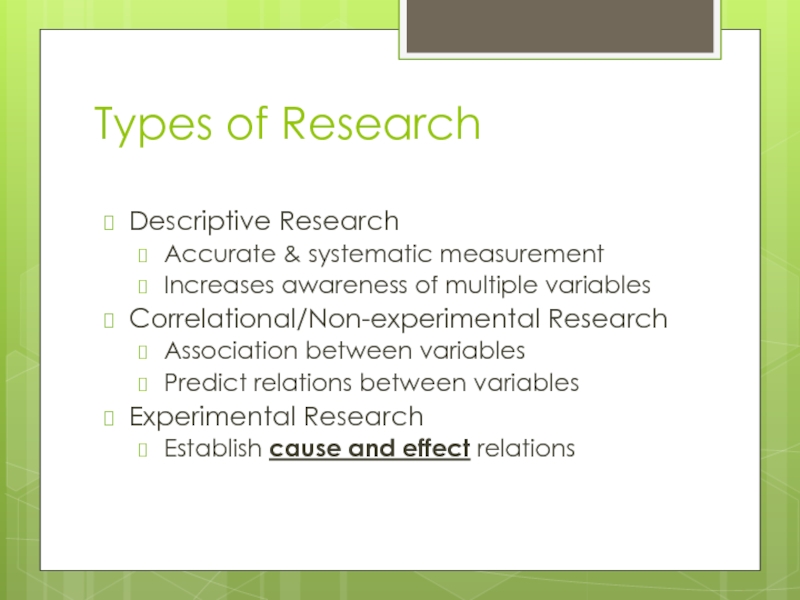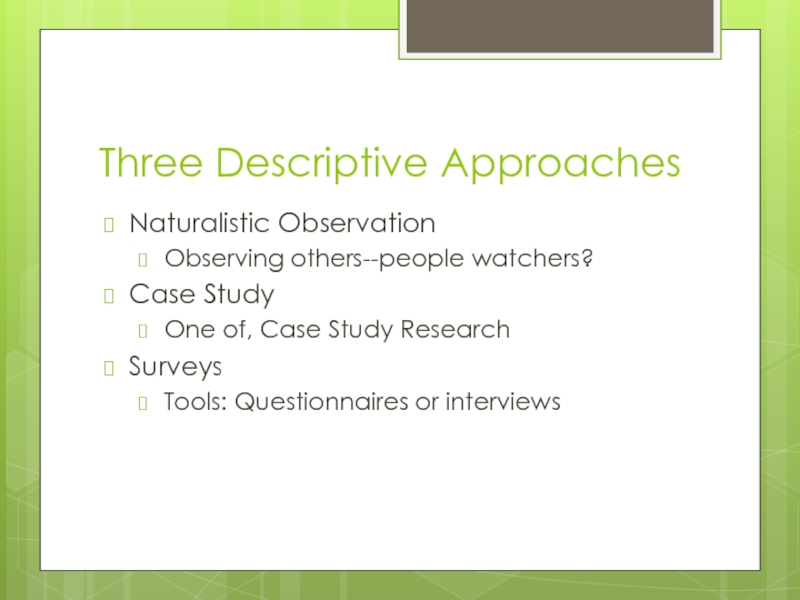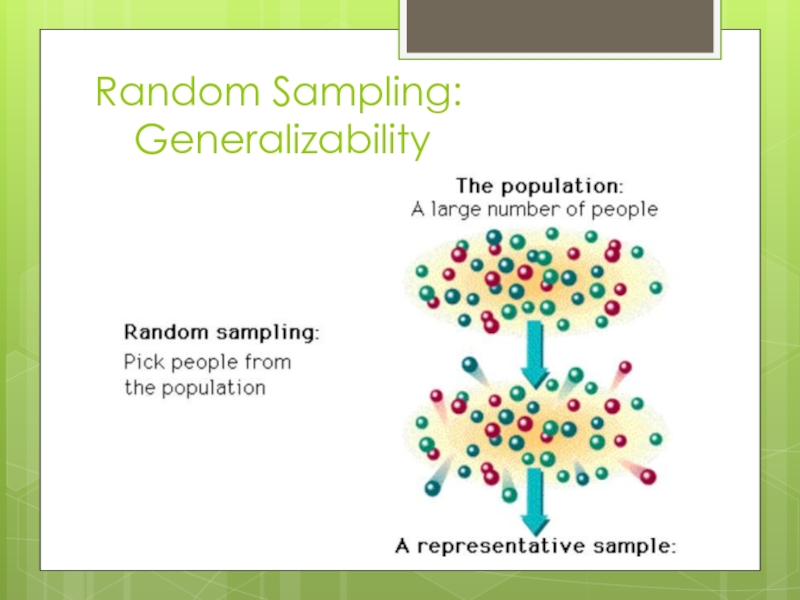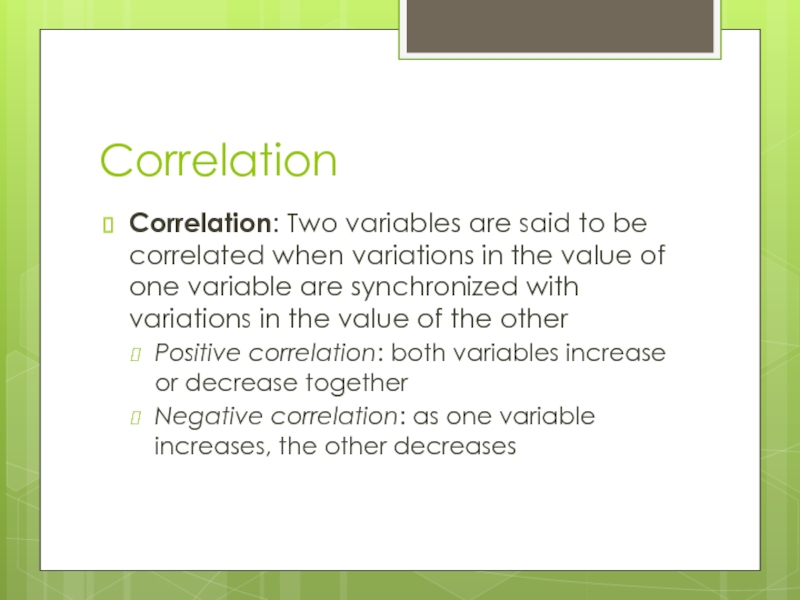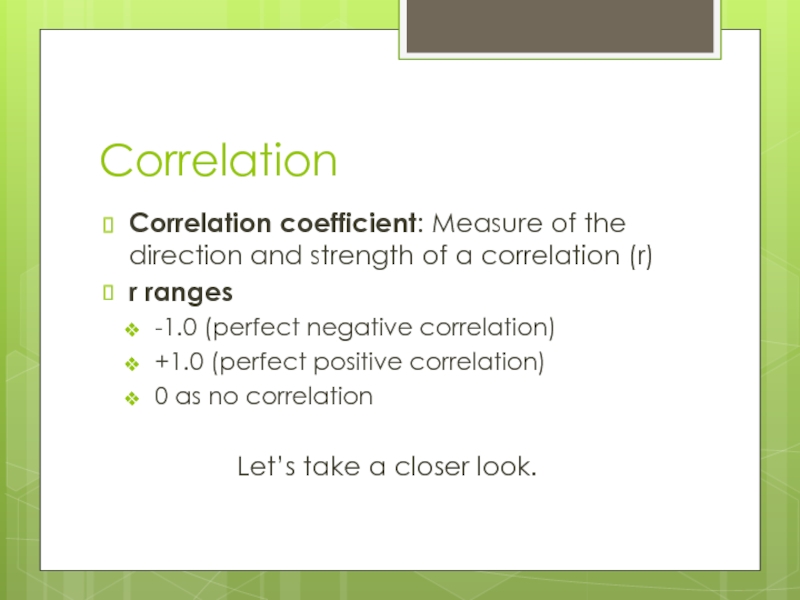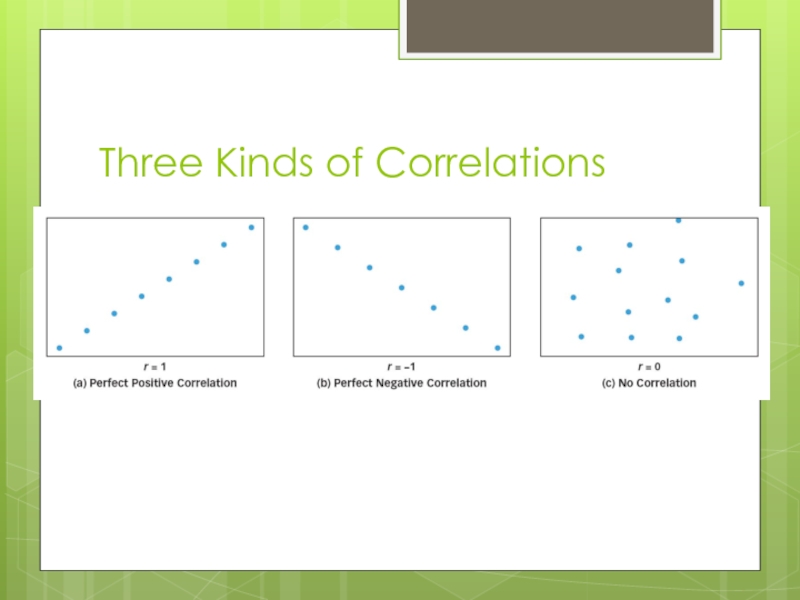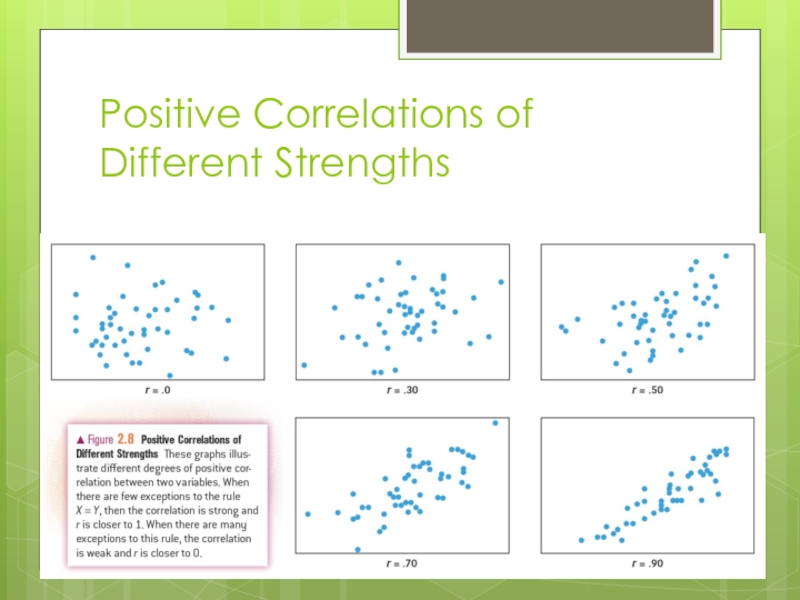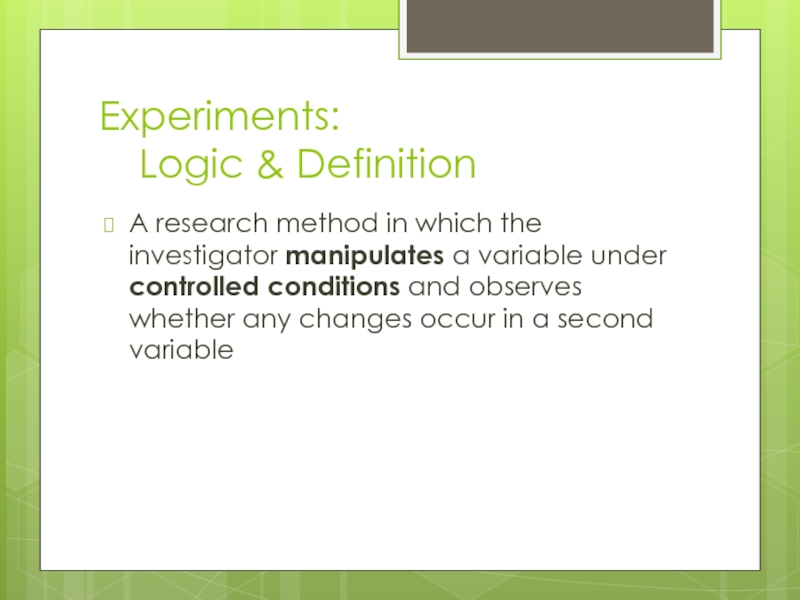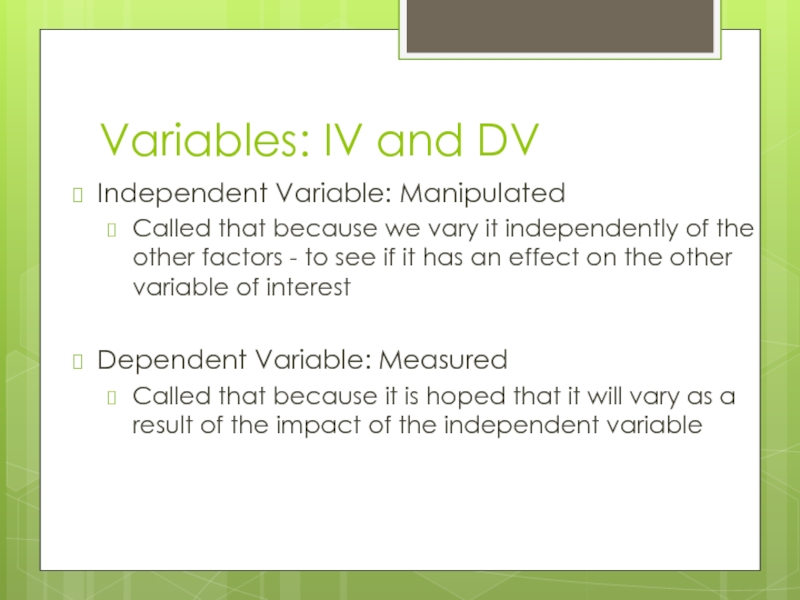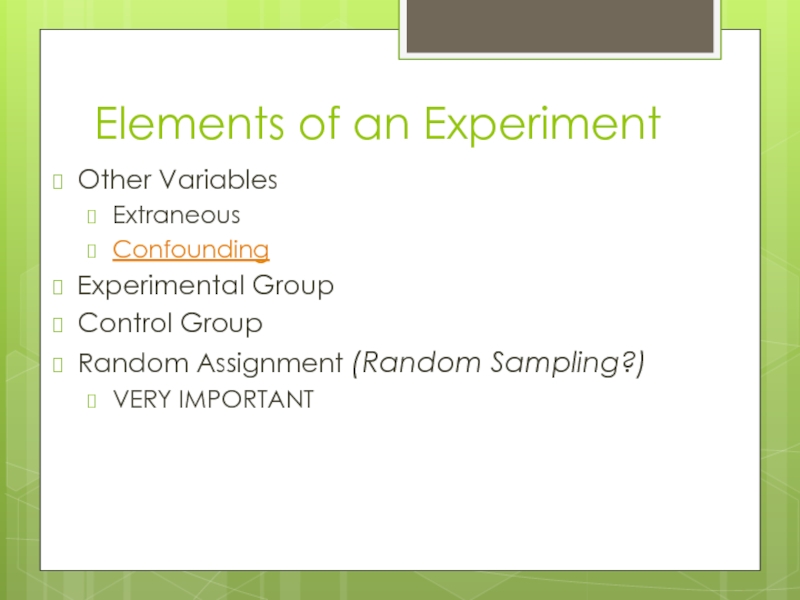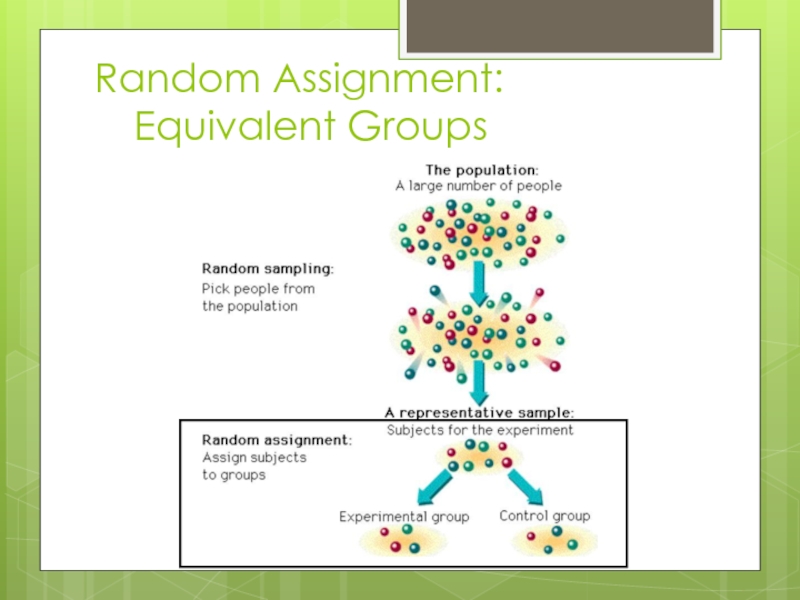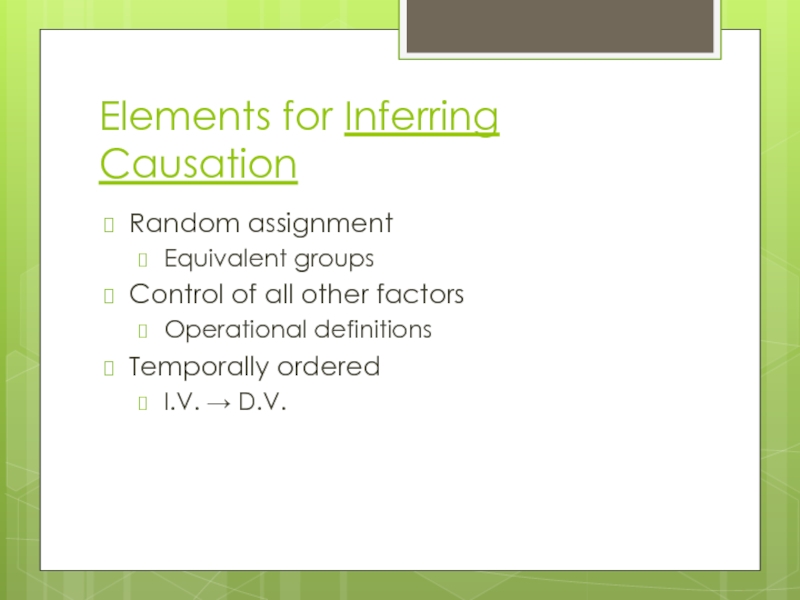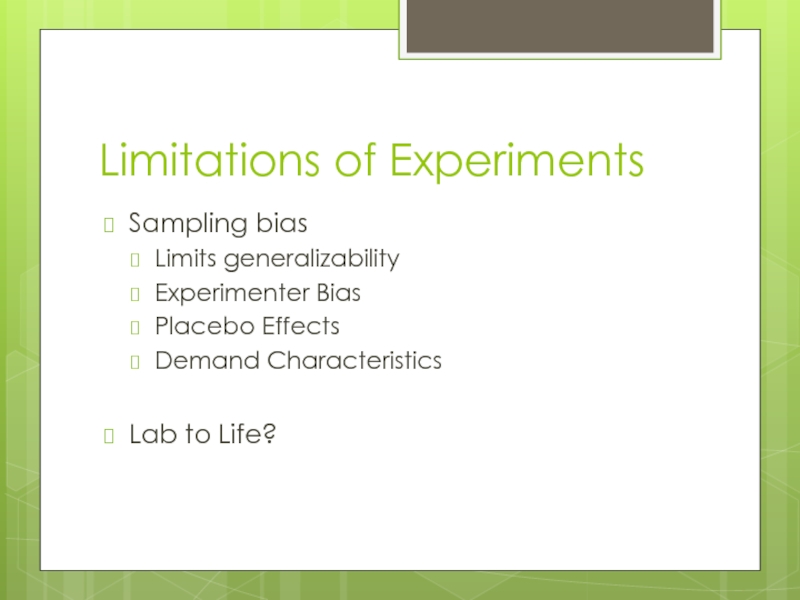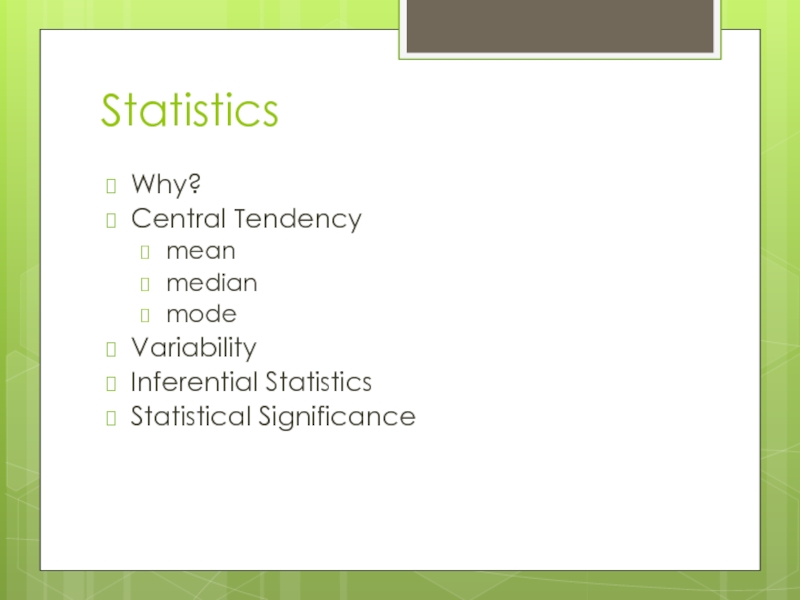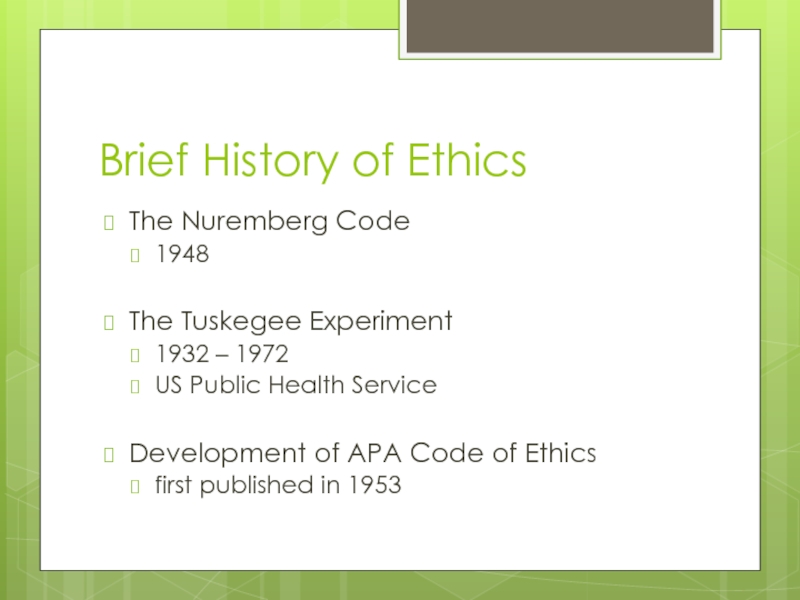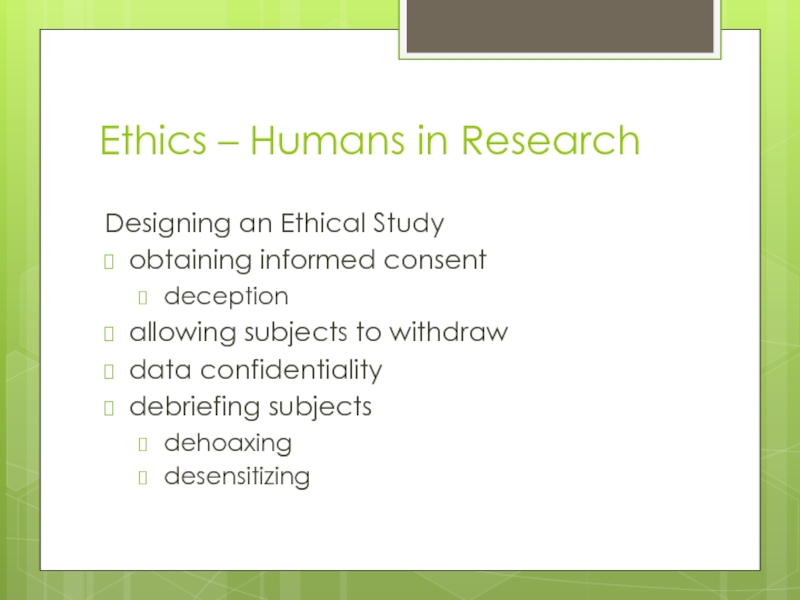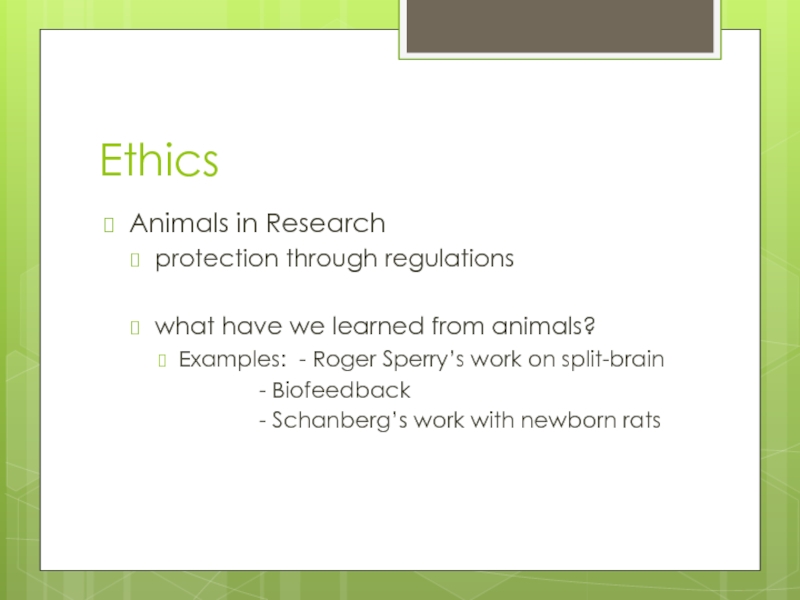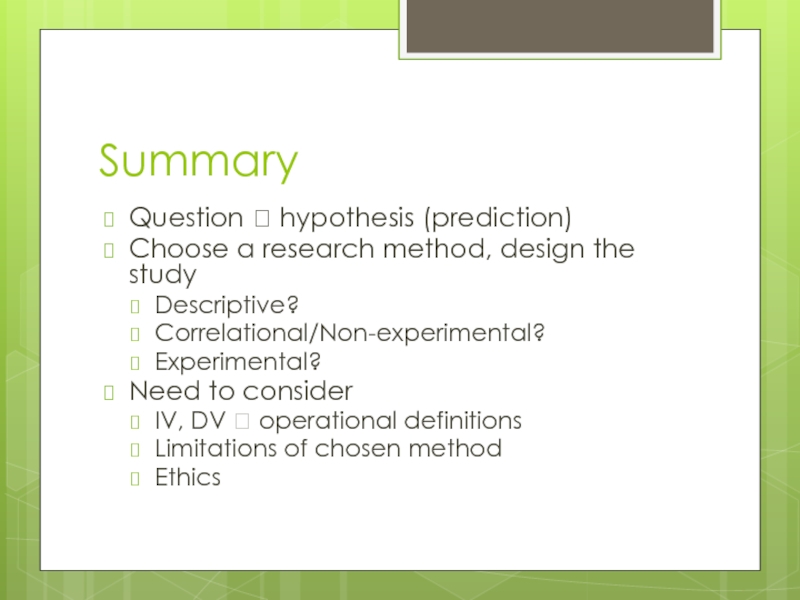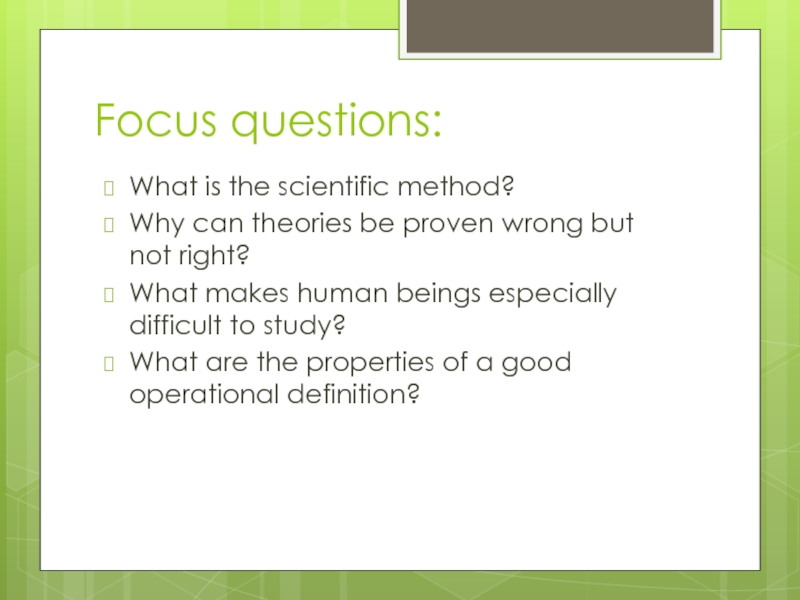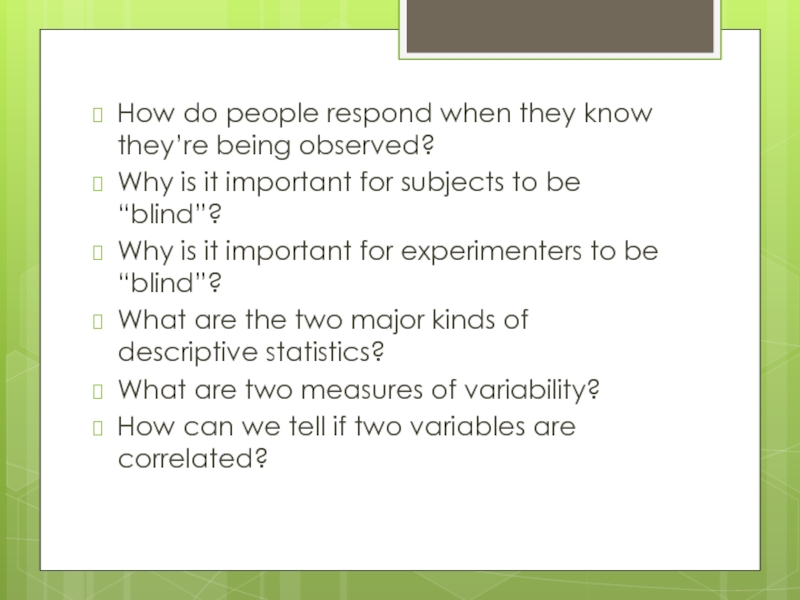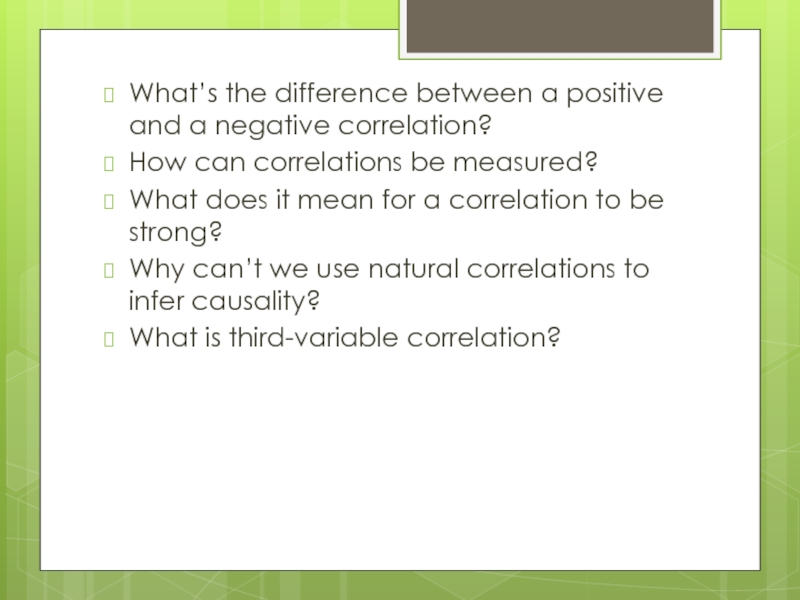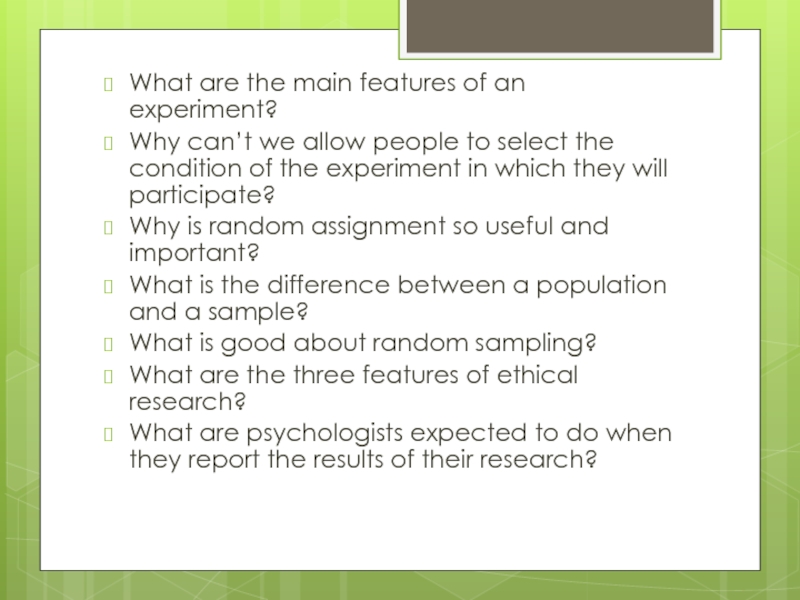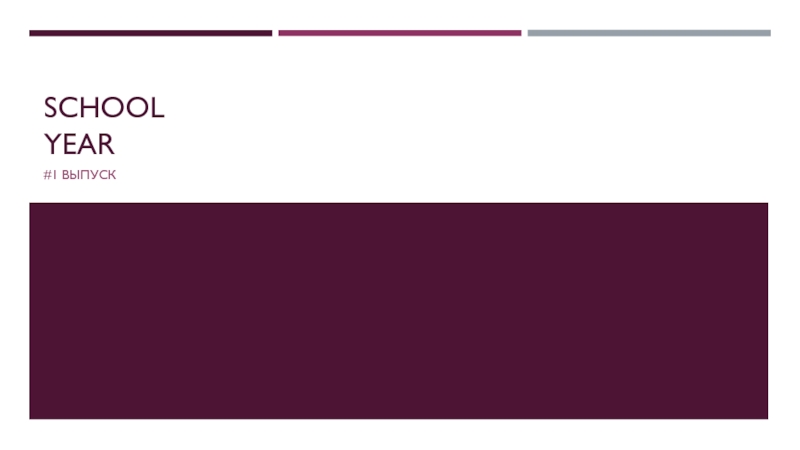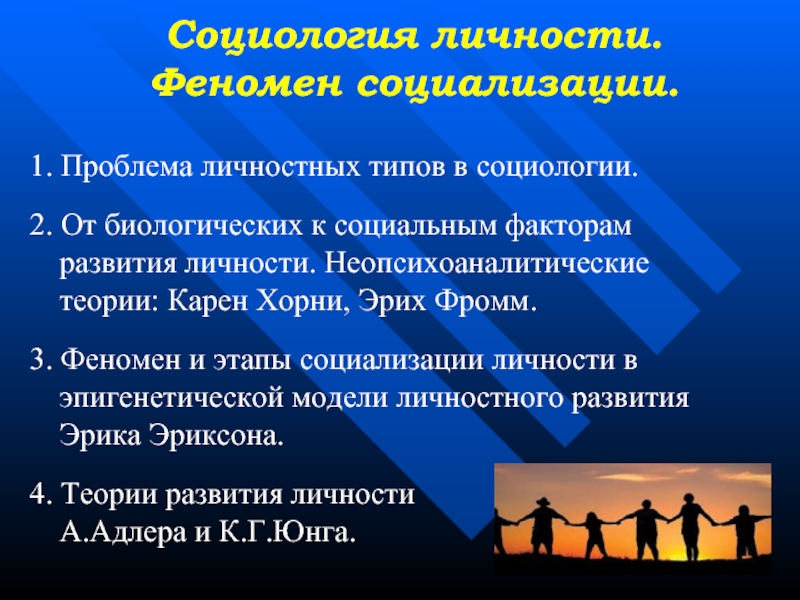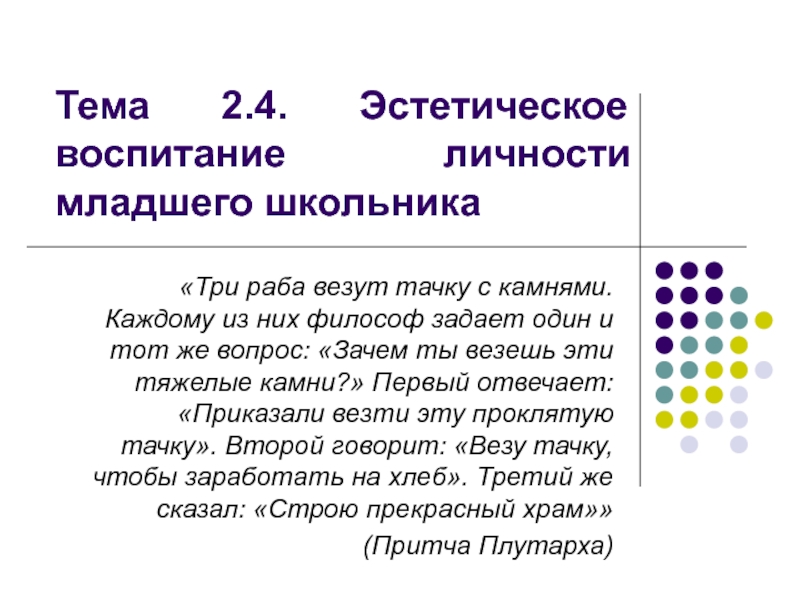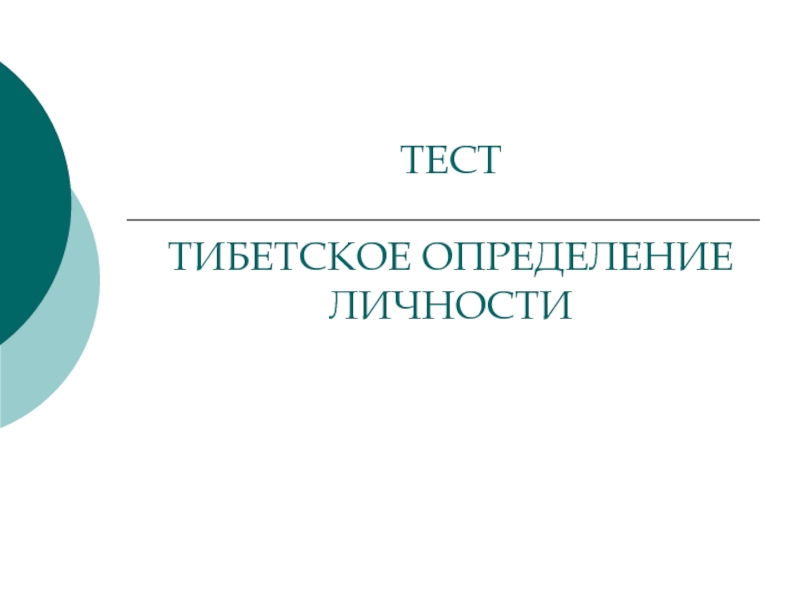- Главная
- Разное
- Дизайн
- Бизнес и предпринимательство
- Аналитика
- Образование
- Развлечения
- Красота и здоровье
- Финансы
- Государство
- Путешествия
- Спорт
- Недвижимость
- Армия
- Графика
- Культурология
- Еда и кулинария
- Лингвистика
- Английский язык
- Астрономия
- Алгебра
- Биология
- География
- Детские презентации
- Информатика
- История
- Литература
- Маркетинг
- Математика
- Медицина
- Менеджмент
- Музыка
- МХК
- Немецкий язык
- ОБЖ
- Обществознание
- Окружающий мир
- Педагогика
- Русский язык
- Технология
- Физика
- Философия
- Химия
- Шаблоны, картинки для презентаций
- Экология
- Экономика
- Юриспруденция
Psychology. Research Methods and Ethics in Psychology презентация
Содержание
- 1. Psychology. Research Methods and Ethics in Psychology
- 2. Science/Empiricism Goals of the Scientific Method:
- 3. Steps in the Scientific Process Observation ?
- 4. Types of Research Descriptive Research Accurate &
- 5. Three Descriptive Approaches Naturalistic Observation Observing others--people
- 6. Random Sampling: Generalizability
- 7. Correlation Correlation: Two variables are said to
- 8. Correlation Correlation coefficient: Measure of the direction
- 9. Three Kinds of Correlations
- 10. Positive Correlations of Different Strengths
- 11. Experiments: Logic & Definition A research
- 12. Variables: IV and DV Independent Variable: Manipulated
- 13. Elements of an Experiment Other Variables Extraneous
- 14. Random Assignment: Equivalent Groups
- 15. Elements for Inferring Causation Random assignment Equivalent
- 16. Limitations of Experiments Sampling bias Limits
- 17. Statistics Why? Central Tendency mean median mode Variability Inferential Statistics Statistical Significance
- 18. Brief History of Ethics The Nuremberg Code
- 19. Ethics – Humans in Research Designing an
- 20. Ethics Animals in Research protection through regulations
- 21. Summary Question ? hypothesis (prediction) Choose a
- 22. Focus questions: What is the scientific method?
- 23. How do people respond when they know
- 24. What’s the difference between a positive and
- 25. What are the main features of an
Слайд 2Science/Empiricism
Goals of the Scientific Method:
Description and Measurement
Understanding and Prediction
Application and Control
Types
of Explanation ? Theories
Слайд 3Steps in the Scientific Process
Observation ? The art of looking
Develop
hypothesis (if/then)
Test hypothesis using empirical method
Design study ? complexity, variability and reactivity
collect data
Analyze data & interpret findings
Findings support/refute theory?
Test again - (new?) hypotheses
Replications
Publication
Test hypothesis using empirical method
Design study ? complexity, variability and reactivity
collect data
Analyze data & interpret findings
Findings support/refute theory?
Test again - (new?) hypotheses
Replications
Publication
Слайд 4Types of Research
Descriptive Research
Accurate & systematic measurement
Increases awareness of multiple variables
Correlational/Non-experimental
Research
Association between variables
Predict relations between variables
Experimental Research
Establish cause and effect relations
Association between variables
Predict relations between variables
Experimental Research
Establish cause and effect relations
Слайд 5Three Descriptive Approaches
Naturalistic Observation
Observing others--people watchers?
Case Study
One of, Case Study Research
Surveys
Tools:
Questionnaires or interviews
Слайд 7Correlation
Correlation: Two variables are said to be correlated when variations in
the value of one variable are synchronized with variations in the value of the other
Positive correlation: both variables increase or decrease together
Negative correlation: as one variable increases, the other decreases
Positive correlation: both variables increase or decrease together
Negative correlation: as one variable increases, the other decreases
Слайд 8Correlation
Correlation coefficient: Measure of the direction and strength of a correlation
(r)
r ranges
-1.0 (perfect negative correlation)
+1.0 (perfect positive correlation)
0 as no correlation
Let’s take a closer look.
r ranges
-1.0 (perfect negative correlation)
+1.0 (perfect positive correlation)
0 as no correlation
Let’s take a closer look.
Слайд 11Experiments:
Logic & Definition
A research method in which the investigator manipulates
a variable under controlled conditions and observes whether any changes occur in a second variable
Слайд 12Variables: IV and DV
Independent Variable: Manipulated
Called that because we vary it
independently of the other factors - to see if it has an effect on the other variable of interest
Dependent Variable: Measured
Called that because it is hoped that it will vary as a result of the impact of the independent variable
Dependent Variable: Measured
Called that because it is hoped that it will vary as a result of the impact of the independent variable
Слайд 13Elements of an Experiment
Other Variables
Extraneous
Confounding
Experimental Group
Control Group
Random Assignment (Random Sampling?)
VERY IMPORTANT
Слайд 15Elements for Inferring Causation
Random assignment
Equivalent groups
Control of all other factors
Operational definitions
Temporally
ordered
I.V. → D.V.
I.V. → D.V.
Слайд 16Limitations of Experiments
Sampling bias
Limits generalizability
Experimenter Bias
Placebo Effects
Demand Characteristics
Lab
to Life?
Слайд 17Statistics
Why?
Central Tendency
mean
median
mode
Variability
Inferential Statistics
Statistical Significance
Слайд 18Brief History of Ethics
The Nuremberg Code
1948
The Tuskegee Experiment
1932 – 1972
US Public
Health Service
Development of APA Code of Ethics
first published in 1953
Development of APA Code of Ethics
first published in 1953
Слайд 19Ethics – Humans in Research
Designing an Ethical Study
obtaining informed consent
deception
allowing subjects
to withdraw
data confidentiality
debriefing subjects
dehoaxing
desensitizing
data confidentiality
debriefing subjects
dehoaxing
desensitizing
Слайд 20Ethics
Animals in Research
protection through regulations
what have we learned from animals?
Examples: - Roger
Sperry’s work on split-brain
- Biofeedback
- Schanberg’s work with newborn rats
- Biofeedback
- Schanberg’s work with newborn rats
Слайд 21Summary
Question ? hypothesis (prediction)
Choose a research method, design the study
Descriptive?
Correlational/Non-experimental?
Experimental?
Need to
consider
IV, DV ? operational definitions
Limitations of chosen method
Ethics
IV, DV ? operational definitions
Limitations of chosen method
Ethics
Слайд 22Focus questions:
What is the scientific method?
Why can theories be proven wrong
but not right?
What makes human beings especially difficult to study?
What are the properties of a good operational definition?
What makes human beings especially difficult to study?
What are the properties of a good operational definition?
Слайд 23How do people respond when they know they’re being observed?
Why is
it important for subjects to be “blind”?
Why is it important for experimenters to be “blind”?
What are the two major kinds of descriptive statistics?
What are two measures of variability?
How can we tell if two variables are correlated?
Why is it important for experimenters to be “blind”?
What are the two major kinds of descriptive statistics?
What are two measures of variability?
How can we tell if two variables are correlated?
Слайд 24What’s the difference between a positive and a negative correlation?
How can
correlations be measured?
What does it mean for a correlation to be strong?
Why can’t we use natural correlations to infer causality?
What is third-variable correlation?
What does it mean for a correlation to be strong?
Why can’t we use natural correlations to infer causality?
What is third-variable correlation?
Слайд 25What are the main features of an experiment?
Why can’t we allow
people to select the condition of the experiment in which they will participate?
Why is random assignment so useful and important?
What is the difference between a population and a sample?
What is good about random sampling?
What are the three features of ethical research?
What are psychologists expected to do when they report the results of their research?
Why is random assignment so useful and important?
What is the difference between a population and a sample?
What is good about random sampling?
What are the three features of ethical research?
What are psychologists expected to do when they report the results of their research?

